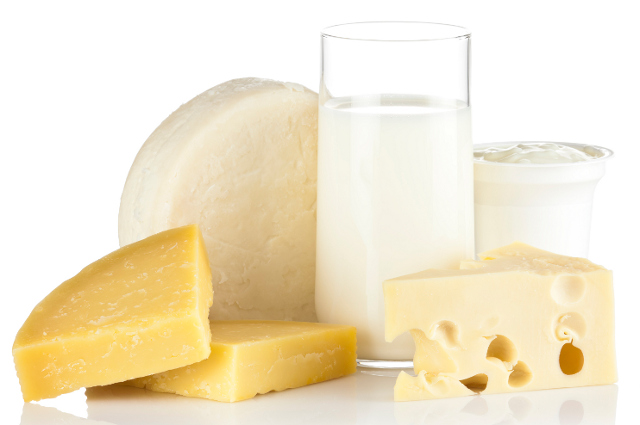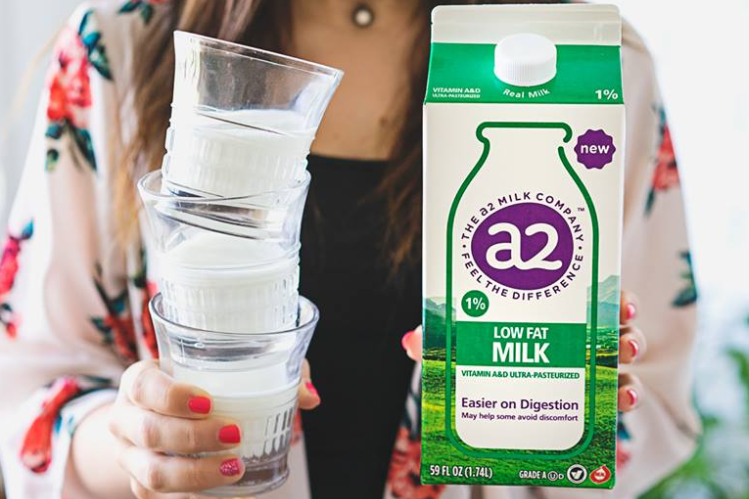
There is no question that consuming dairy is rather controversial these days. It seems that as soon as someone has a digestive or health issue, dairy is one of the first things to go. And the anecdotal evidence seems to indicate that the vast majority find relief from whatever is ailing them when they stop consuming it.
Why is this?
Interestingly enough, humans are the only mammals that consume dairy products from another species despite evolutionary and scientific support that dairy is not necessary for optimal health. Many at first may think, but what about our calcium intake? There is no doubt that calcium is important and that dairy is a great source. Calcium makes up much of our bones and teeth and plays a role in heart health, muscle function and nerve signalling. However, there are many non-dairy sources that are high in calcium including seafood, leafy greens, legumes, dried fruit and various food that are fortified with calcium.

So why is dairy “so bad for us”?
There are a number of reasons that dairy is believed to be bad for us. This includes being exposed to unnecessary antibiotics and hormones (and the many consequences attributable to them), to potentially increased insulin levels, to causing increased inflammation leading to various medical issues (e.g. respiratory issues) and/or notable digestive issues (bloating, gas, abdominal pain, fatigue, etc.)
I also found it interesting to learn that approximately 75% of the world’s population is unable to break down lactose (i.e. lactose intolerance). Even further interesting, is that many of today’s progressive researchers and medical doctors attribute lactose intolerance to actually casein intolerance, casein A1 specifically.
Hunh? Casein A1?
Well to quote Dr. Gundry, “…the cows in the Northern parts of Europe went through a genetic mutation, causing their milk to become full of a lectin-like protein known as casein A1 protein… once you ingest casein A1, it transforms in your body and becomes a new protein – beta-casomorphin… it turns out, beta-casomorphin can spark immune attacks on your pancreas and make you feel pretty sick…” In fact, it is believed that all the pain, discomfort and other embarrassing issues that many endure as a result of ingesting dairy are due to casein A1.
So, when it comes to eliminating dairy – you’ve just got to know what to substitute for products that contain casein A1. Apparently there are a number of herds of cows who never went through the genetic mutation. They still exist in Southern Europe. These unscathed cows happen to make a different protein – casein A2. And THIS protein is supposed to be much better for you. Many grocery stores – Whole Foods for example – now carry Casein A2 milk! So this is not an “out there” concept to say the least…it is real.

Click here to read more about dairy substitutes, as well as a better explanation on the problems with dairy and this whole “casein A1 vs. A2” stuff.
Now, if you’re like me, you probably don’t want to be reminded of what you CAN’T eat but rather just be told what you CAN eat. In short, any of the below options are great substitutes for cow dairy with casein A1:
- casein A2 milk
- goat milk, yogurt, butter and cheeses
- unsweetened coconut milk
- unsweetened almond milk (ideally made with blanched almonds)
- buffalo milk, yogurt and cheese (hello Buffalo Mozzarella!)
- sheep cheese (lots of great hard cheeses that taste similar to hard cow cheeses)
- ghee
- grass-fed French or Italian butter (because the butter originates from A2 cows in Southern Europe)
- any cheese made and/or imported directly from Italy, Southern France and/or Switzerland (think of yummy Gruyere!)
- AND…for the best part…any high fat dairy products (regardless if A1 or A2) because high fat dairy products don’t contain any casein! These include:
- High-fat French/Italian cheeses, such as triple-cream brie
- Parmesan Cheese
- Organic heavy cream
- Organic sour cream
- Organic cream cheese
Of course, if you’re trying to eat clean AND lose weight, then I probably wouldn’t encourage the ingestion of a lot of high fat dairy products…but if you’re just trying to follow anti-inflammatory diet and are worried you can’t ever eat cheese or creams again, this knowledge should help ease that blow 🙂
Hope this helps. Again, this is clearly a controversial and interesting subject. For those who are interested, check out these links for additional and more detailed information on the subject matter. As always, shoot me an email or comment on instagram if you need! Cheers.
https://www.healthline.com/nutrition/is-dairy-bad-or-good#intolerance
https://www.gundrymd.com/does-goat-cheese-have-casein/
https://www.cleaneatingkitchen.com/health-reasons-to-go-dairy-free/
Referencess: All information was sourced from the 4 links provided in this article.
Images: https://now.tufts.edu/articles/rethinking-dairy-fat; https://www.foodnavigator-usa.com/Article/2018/08/23/a2-Milk-rolls-out-at-Walmart-It-s-a-real-validation-of-our-business-proposition
